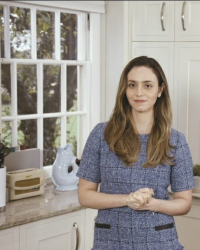The truth about antioxidants and fertility
Antioxidants. Free radicals. Oxidative damage. It’s all that is talked about in the fertility world and chances are, you’ve read about it. Or perhaps you and/or your partner are even taking antioxidant supplements to help ‘boost’ your fertility.

This article is going to break down the meaning of the above words and help you understand how antioxidants can affect fertility.
What is an antioxidant?
Simply put, an 'antioxidant' is a term used to describe compounds that are able to prevent other compounds known as ‘free radicals’ from causing damage to our body. Think of a free radical like a four-piece puzzle. It has lost one of its pieces (in science terms this piece is an ‘electron’) and needs to pick up a piece (an electron) from somewhere else in order to become complete. The free radicals damage molecules, DNA, and cell structures throughout the body in order to obtain the missing part. This is known as oxidative damage.
Antioxidants can help prevent this damage from occurring by giving up a piece (an electron) of their own jigsaw to the free radical, in essence, ‘switching off’ the free radical and preventing it from doing any damage.
Antioxidants and fertility
Now you may be wondering about the relevance of antioxidants in the context of fertility. Sperm and eggs are cells. This means that they can be damaged by free radicals in the same way that all other cells are damaged. This damage essentially impacts the DNA quality of the egg and sperm which can have a subsequent negative effect on the following factors:
- rates of fertilisation
- embryo quality
- implantation chances
- miscarriage risk
This leads us to the next question…
Where can you get antioxidants?
Now, the most familiar antioxidants that you have likely heard about include vitamin C, vitamin E, and zinc, however, there are hundreds, if not thousands of different substances that are able to act as antioxidants. Most occur naturally in food and play a role in protecting foods from environmental damage.
It is important to be aware that each antioxidant has unique properties and behaviours. Although 'antioxidant' is used as an umbrella term, each antioxidant will exert different benefits and this is where people go wrong – they take something like vitamin C thinking it will be a quick fix to their fertility woes.
The truth is that no single antioxidant can do the job of a whole crowd. Studies have shown that, in many cases, the use of a single antioxidant in the form of a supplement in isolation does not exert the same benefits as eating food in its whole form. In addition, many fertility supplements will be marketed as containing antioxidants to ‘boost’ fertility, but often, the doses used are either too high or in very low doses that have been shown to be ineffective in studies.
The best way to get a range of antioxidants from your diet to help support your fertility is by eating a diverse diet, full of fruit, vegetables, and wholegrains. Here are some examples of some antioxidants found in food:
- Vitamin C: Potatoes, cruciferous vegetables, kiwi, citrus fruits, strawberries, peppers, tomatoes, potatoes.
- Folate: dark green leafy veg, asparagus, peas, beans, nuts and grains.
- Zinc: Chicken, beef, oysters, sesame seeds, prawns, chickpeas, cashews, lentils
- Vitamin E: avocado, dark green leafy veg, sunflower seeds, peanuts, almonds, red peppers, spinach.
- Selenium: Brown rice, brazil nuts, beef, chicken, shellfish, fish.
Bottom line: Dietary sources of antioxidants do help to improve fertility. Improve the variety of your diet by including the foods listed above before reaching out for supplements.
If you feel that you would benefit from some tailored advice, don’t hesitate to reach out for a free discovery call where we will discuss your nutrition goals, health history, and how I can help you get clear on what needs to be done to optimise your fertility.

Find a nutritionist dealing with Pregnancy and preconception
All nutrition professionals are verified



